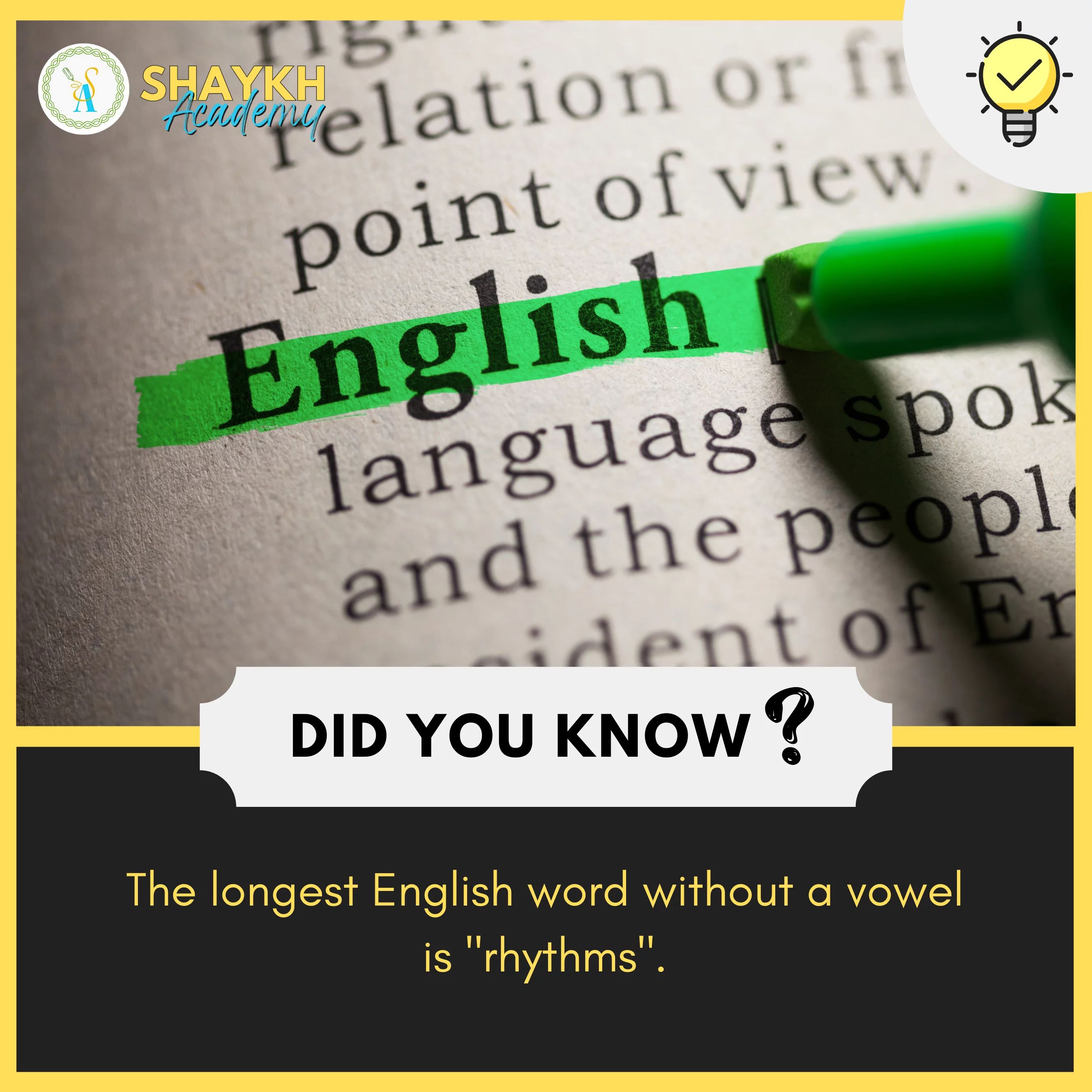The longest English word without a vowel is “rhythms”.

“Rhythms” is a seven-letter word that holds a unique place in the English language. It is the longest word that does not contain any of the standard vowels (A, E, I, O, U). Despite the absence of vowels, the word still forms a coherent and meaningful term.
1. Definition: “Rhythms” refers to repeated patterns of sounds or movements. In music, rhythm is the arrangement of sounds in time, often marked by a regular beat or sequence. In a broader sense, rhythms can describe patterns or cycles in various contexts, such as biological rhythms (circadian rhythms), dance, poetry, and even daily routines.
2. Phonetics: Although “rhythms” lacks vowels, it includes the letter “Y,” which often acts as a vowel in English. In this word, “Y” takes on the role of a vowel sound, helping to create a pronounceable term.
3. Linguistic Curiosity: The word “rhythms” showcases the flexibility and complexity of the English language. It demonstrates how consonants and semi-vowels (like “Y”) can combine to form meaningful words without the need for traditional vowels.
4. Usage: “Rhythms” is commonly used in discussions about music, poetry, dance, and natural cycles. For example:
- In music: “The drummer’s intricate rhythms kept the audience captivated.”
- In poetry: “The poem’s rhythms mirrored the natural flow of the river.”
- In biology: “Circadian rhythms regulate our sleep-wake cycles.”
By exploring the intricacies of words like “rhythms,” we gain a deeper appreciation for the richness and versatility of language, reminding us of the endless possibilities within the realm of words.
For more facts:
